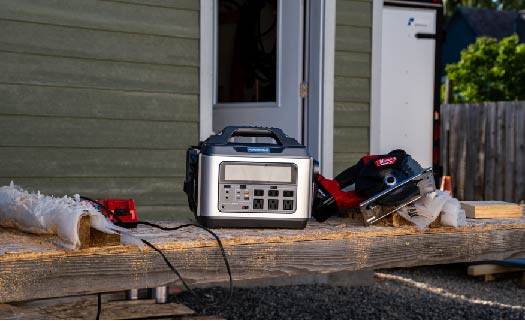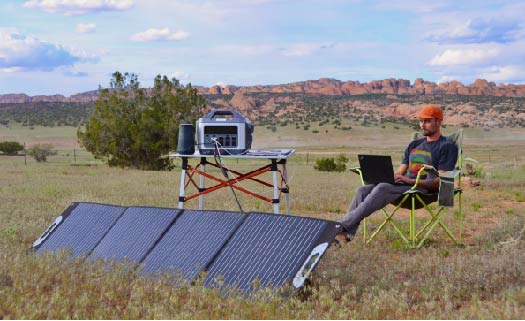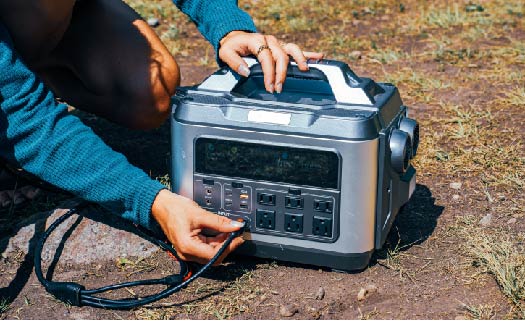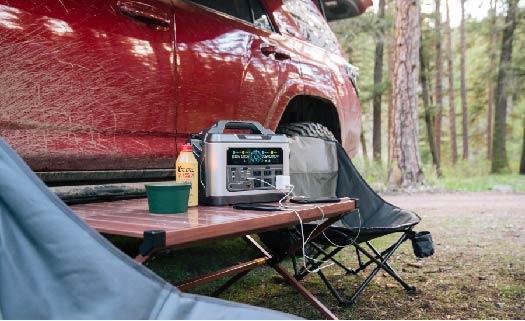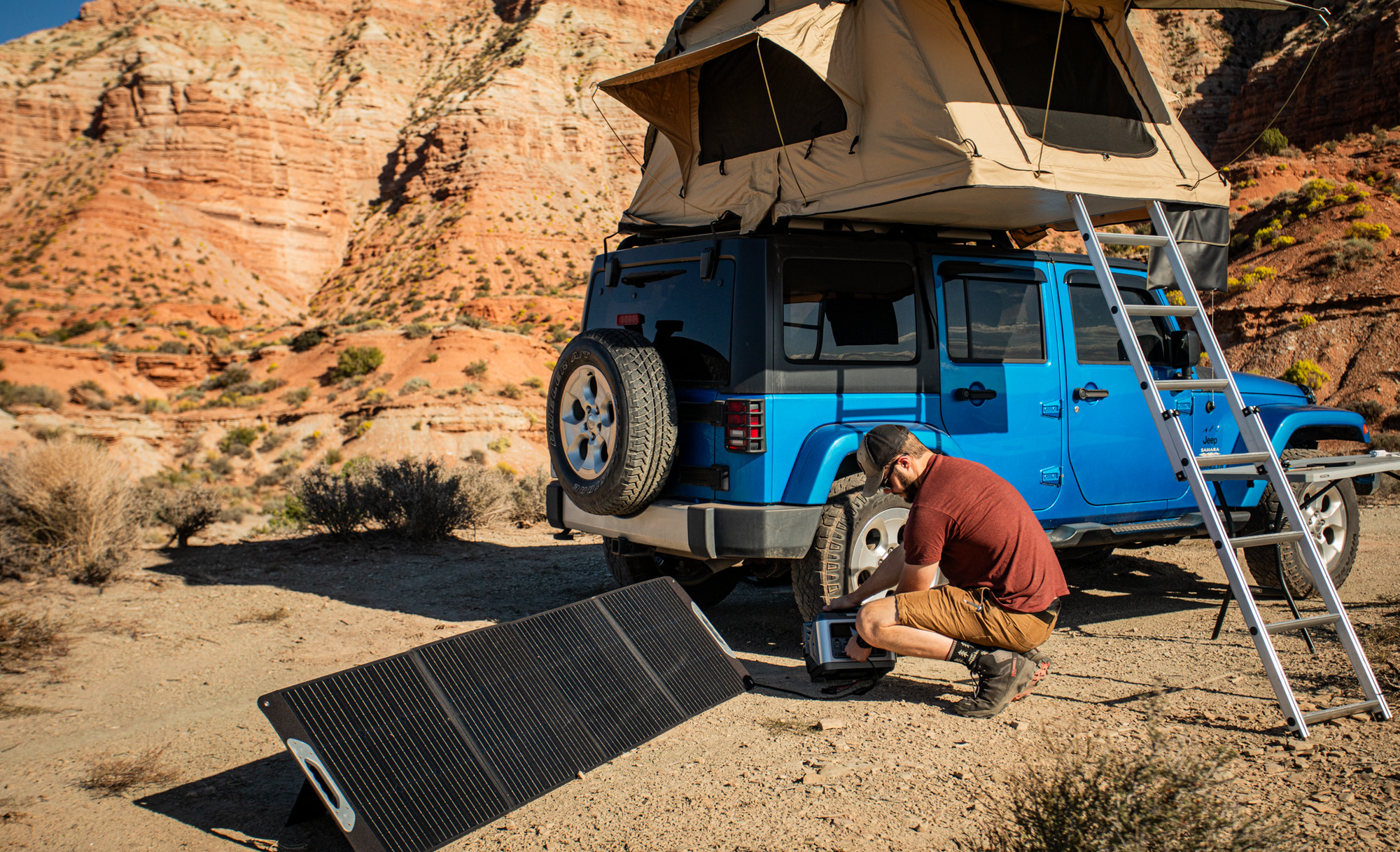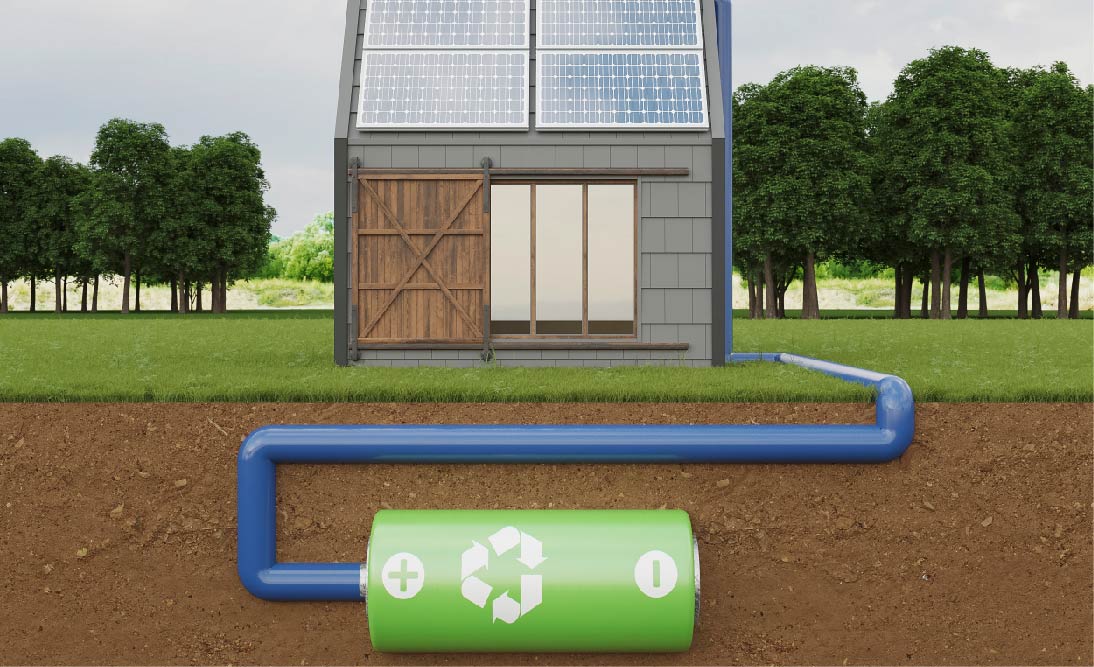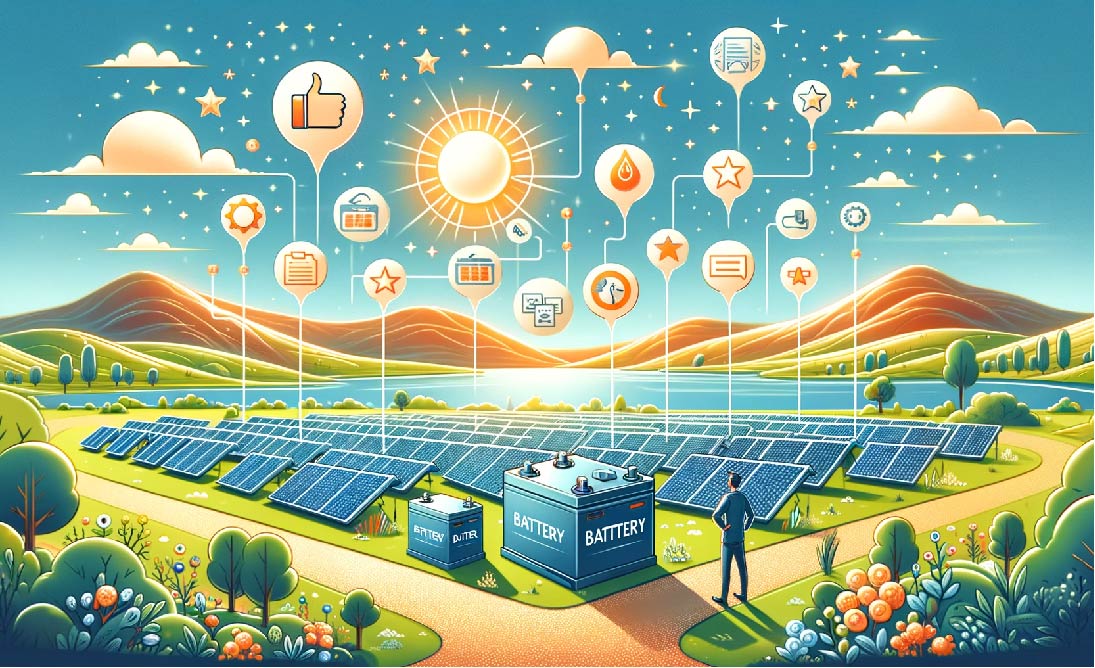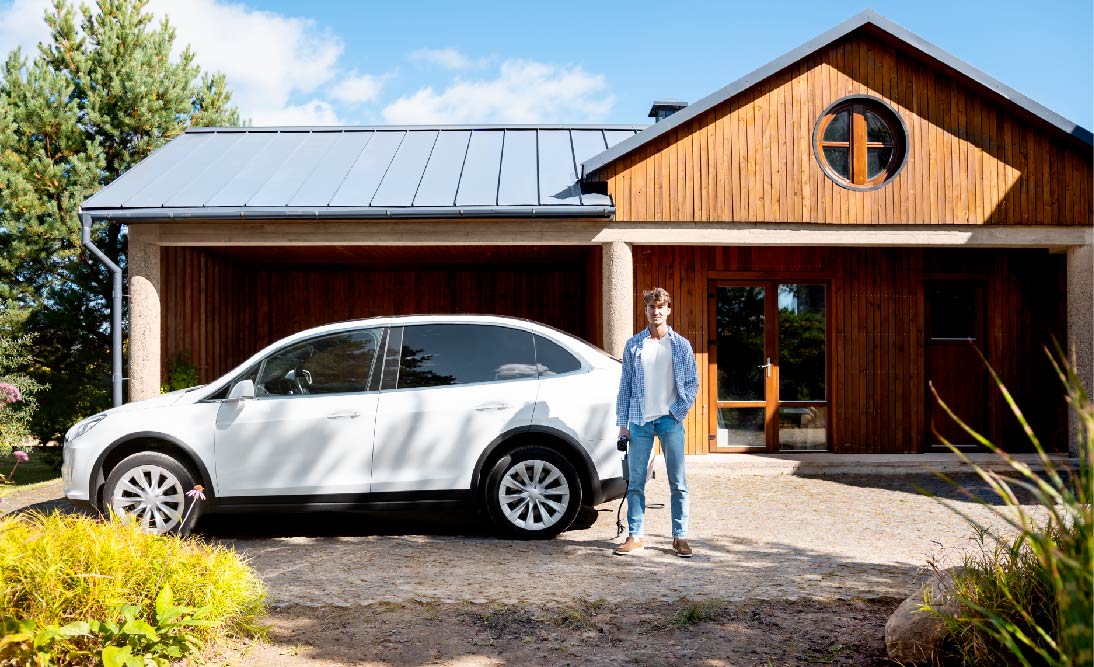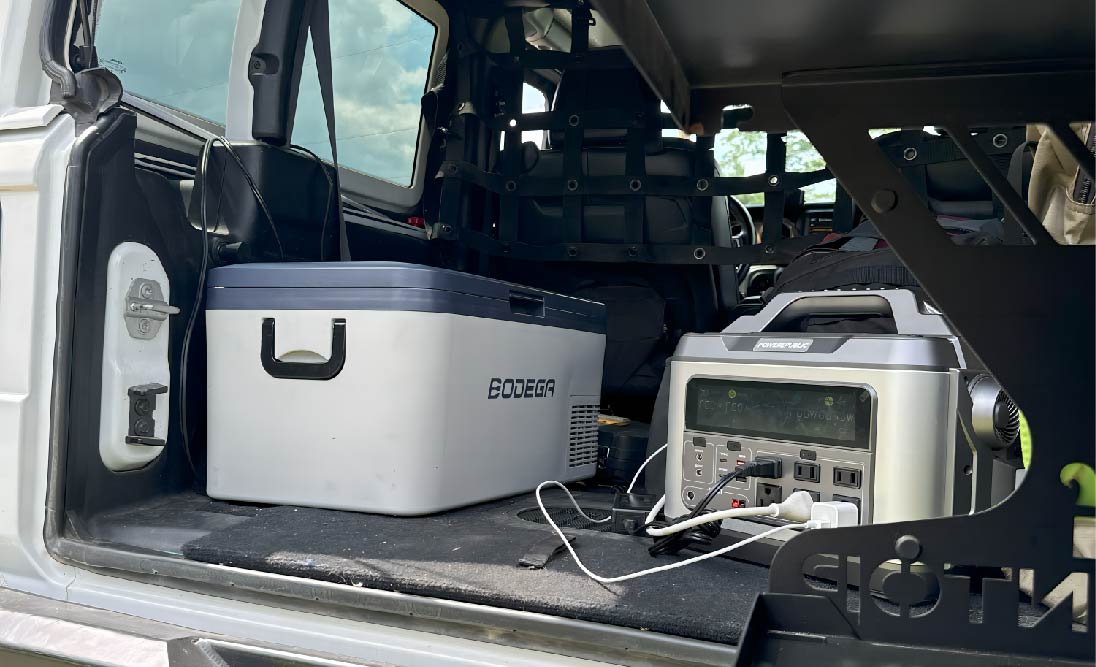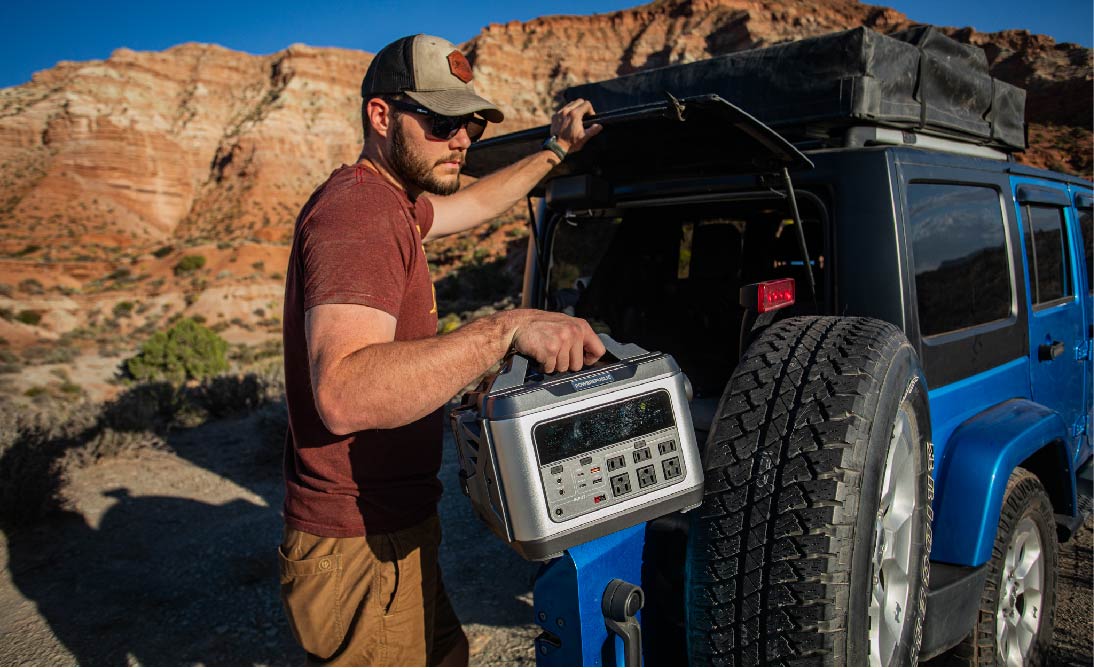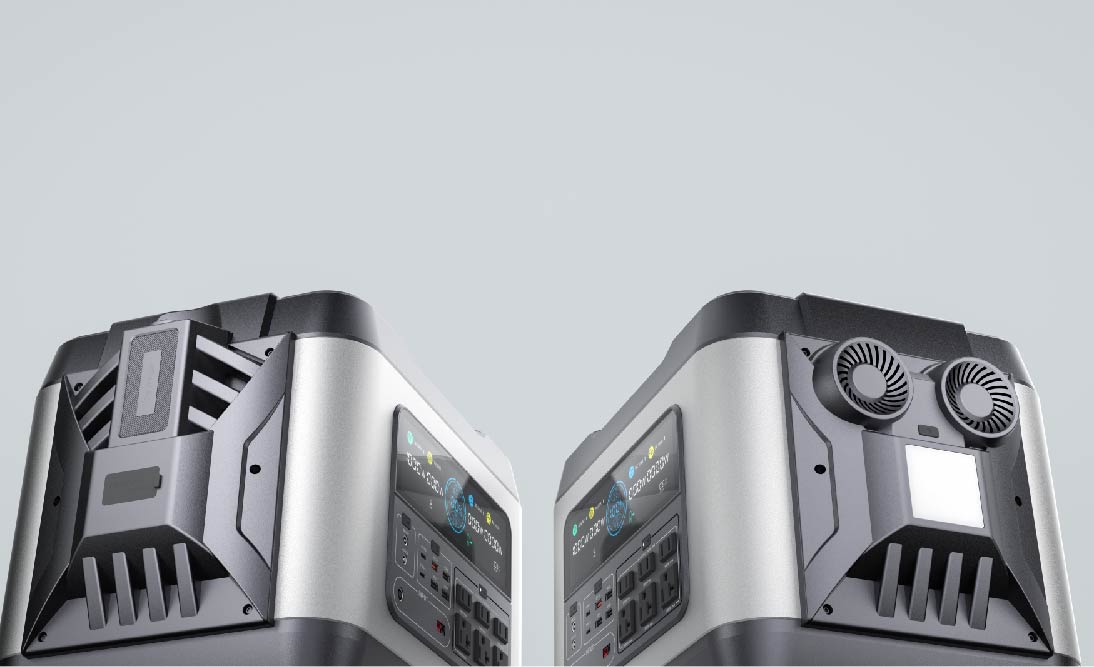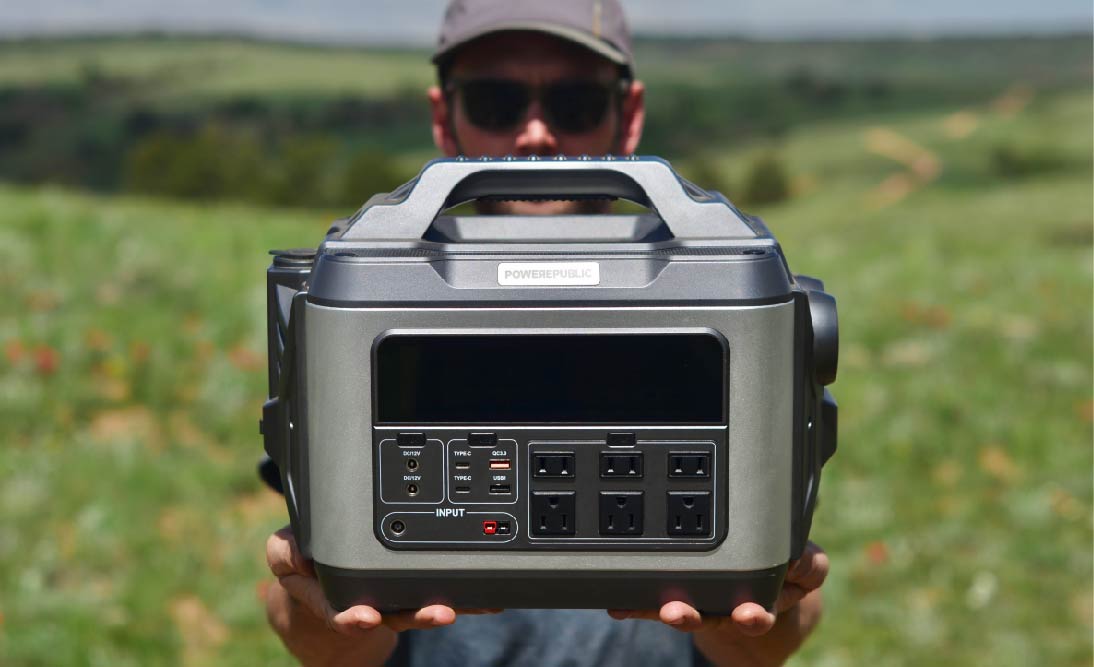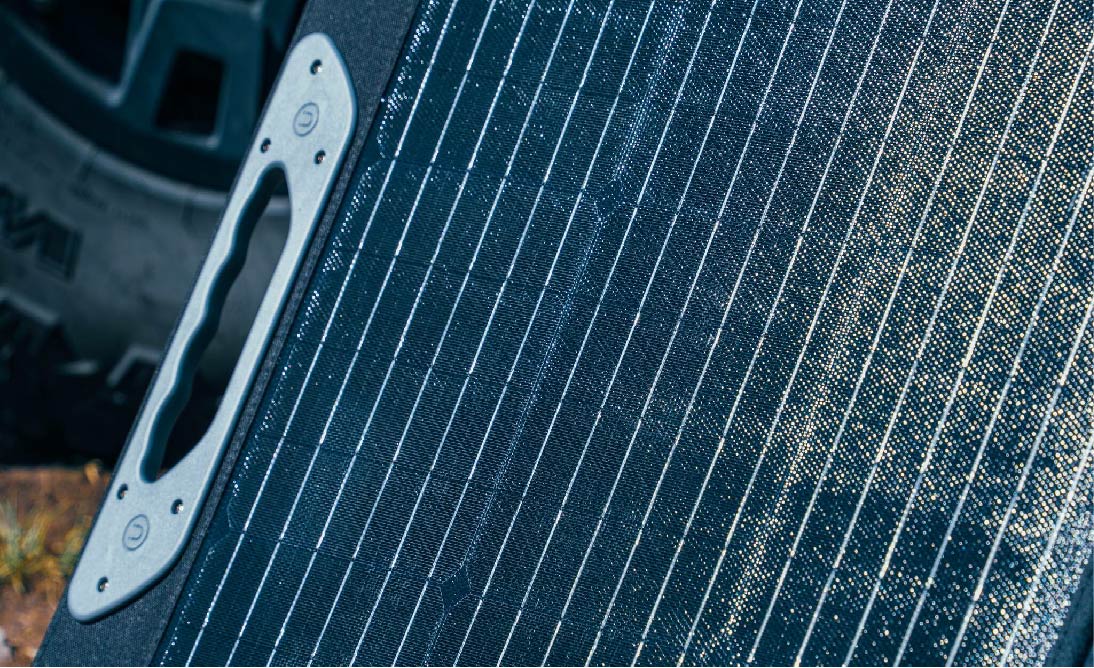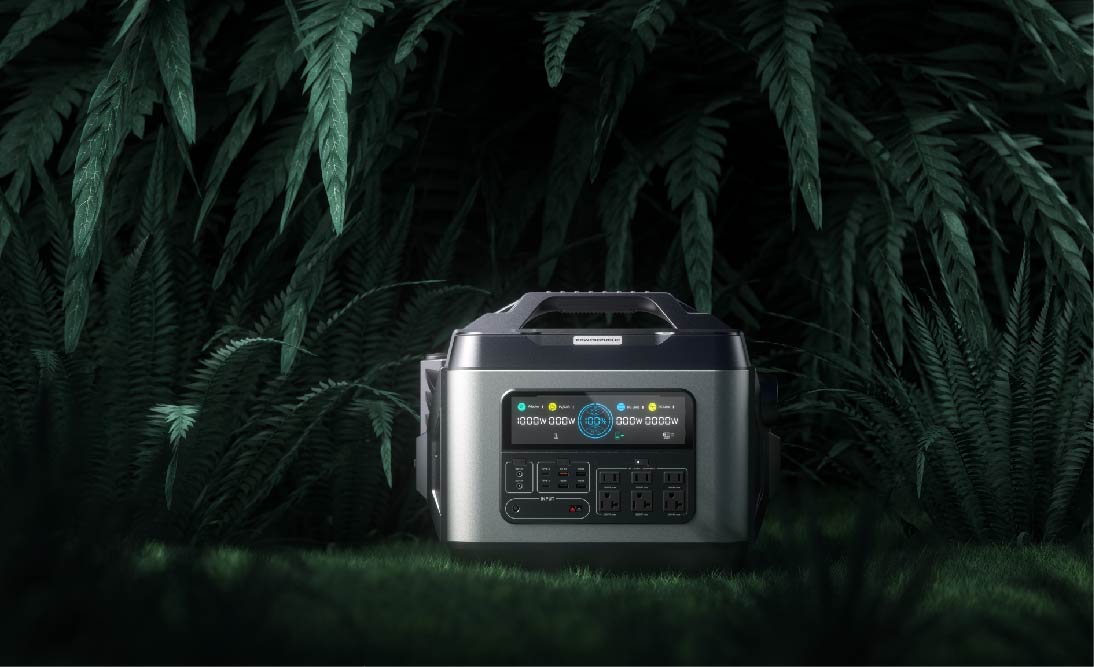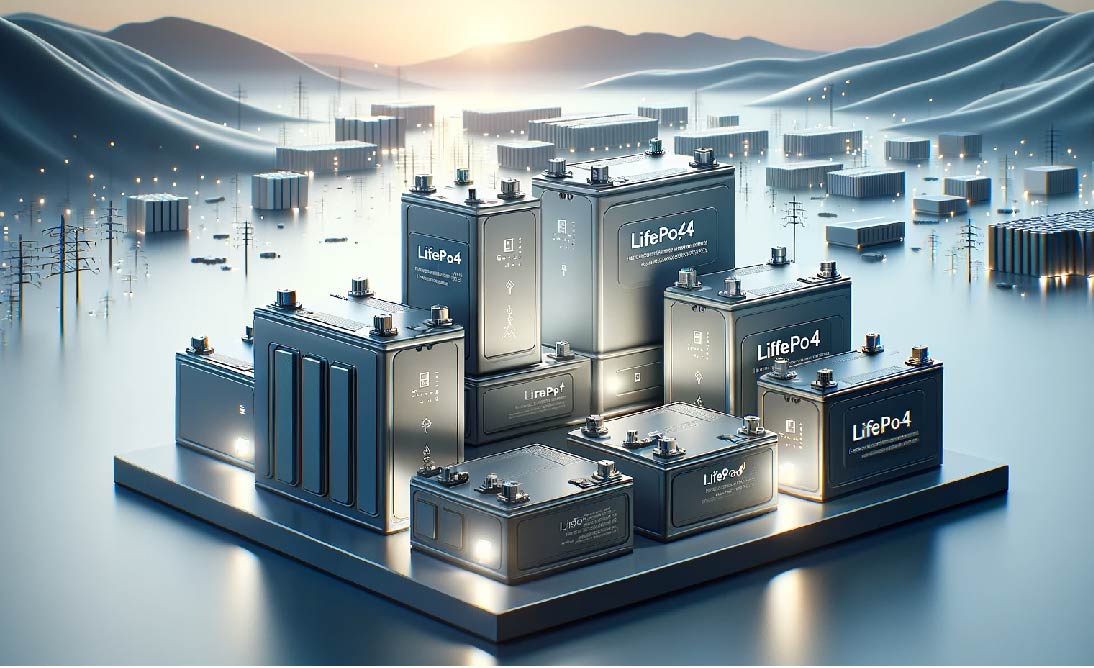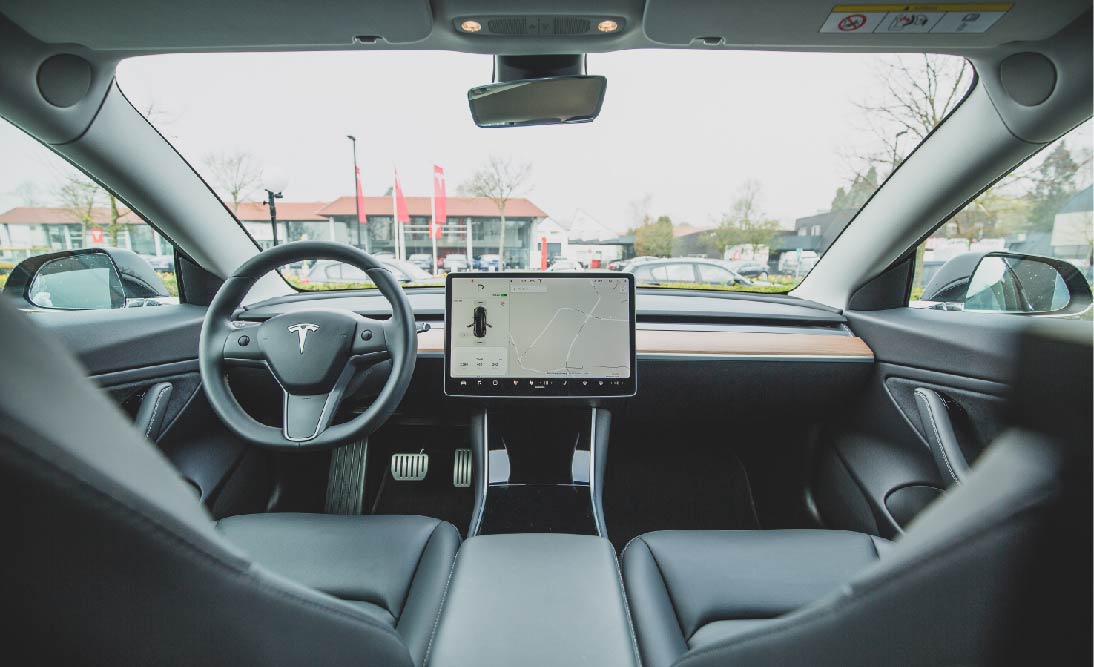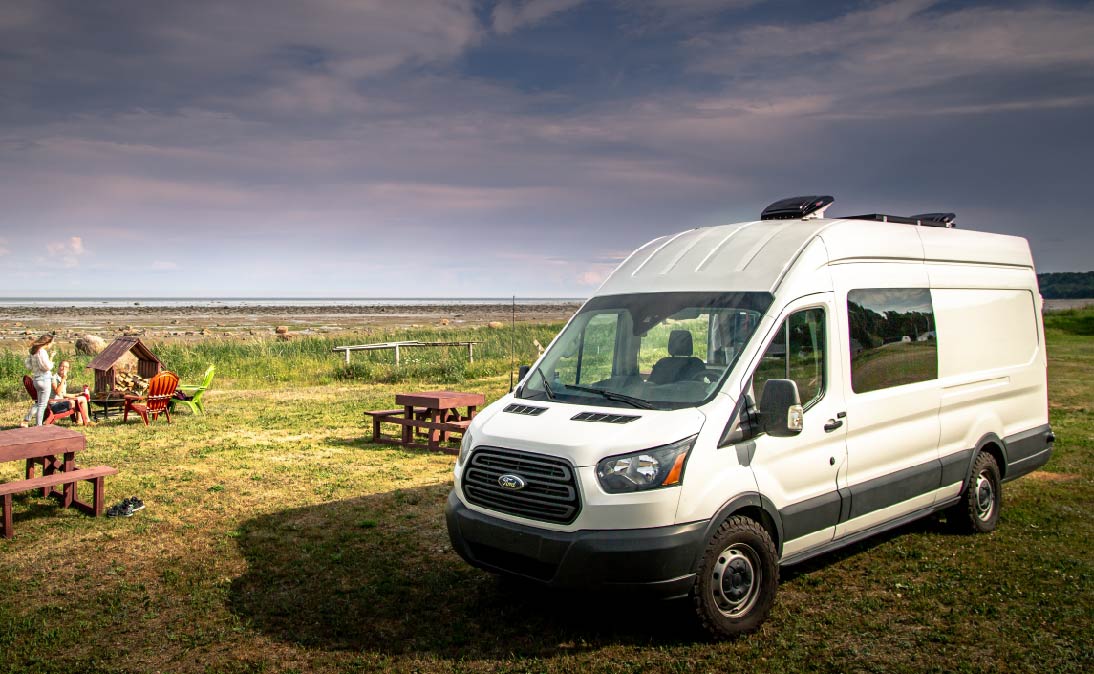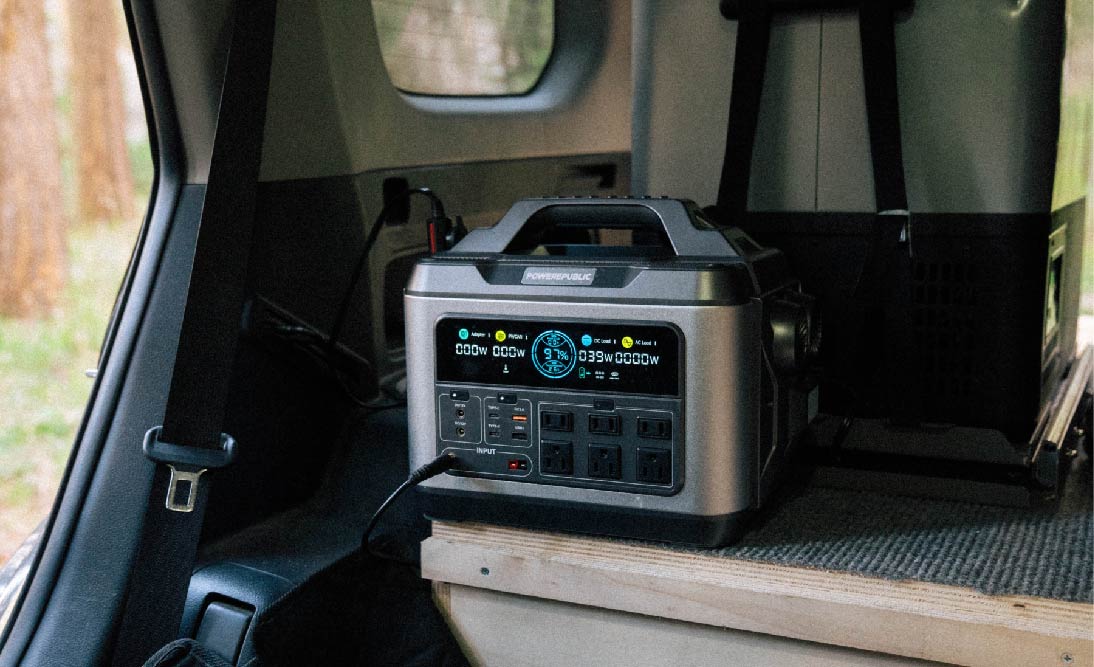Table Of Contents:
In our previous article, we provided a general definition of what a rechargeable generator is, discussed types of rechargeable generators, such as wind generators and solar generator kits, explained their functions and applications, highlighted the benefits of owning a rechargeable generator, and introduced POWEREPUBLIC solar generator kits as an example of rechargeable generators.
Here, we will address some frequently asked questions about rechargeable generators that were not covered in our previous article. We hope you will find these questions informative and beneficial.
Why Choose A Rechargeable Generator?

From our previous article, we learned about five common types of rechargeable generators: solar generators, wind generators, fuel-powered generators with battery storage, hybrid generators, and home energy storage systems.
Compared to traditional generators that rely on fossil fuels, rechargeable generators typically use batteries, often lithium-ion or lead batteries, to store and release energy, resulting in minimal or no harmful chemicals released into the atmosphere. We will provide reasons for having each type of rechargeable generator.
1. Solar Generators
Solar generators capture energy from the sun through photovoltaic panels, which convert sunlight into electricity. Here are the key advantages:
-
Renewable and Environmentally Friendly: Solar generators offer a clean, renewable energy source, reducing greenhouse gas emissions and dependence on finite fossil fuels.
-
Silent and Emission-Free: They operate quietly and produce no harmful emissions, making them suitable for both outdoor and indoor use.
-
Minimal Maintenance: Solar generators have few moving parts and typically require minimal maintenance, reducing long-term operational costs.
2. Wind Generators
Wind generators utilize the kinetic energy of the wind to generate electricity. Here's a closer look at their benefits:
-
Clean Energy Source: Wind generators provide an eco-friendly energy solution, as they don't emit greenhouse gases or pollutants during operation.
-
Location Dependency: While they can be installed in various settings, the efficiency of wind generators is influenced by the wind patterns in a given location, which can limit their applicability.
-
Weather Sensitivity: Wind generators may also be affected by weather conditions, as calm or turbulent winds can impact their energy output.
3. Fuel-Powered Generators with Battery Storage
These hybrid generators combine conventional fuel-based technology with battery systems, offering distinct advantages:
-
Versatility: Hybrid generators can switch between using stored energy in batteries and conventional fuel, providing flexibility and reliability during power outages.
-
Environmental Benefits: When using battery power, they operate quietly and emit no harmful fumes, contributing to a cleaner environment.
-
Complexity and Maintenance: Hybrid systems may be more complex and require maintenance of both the generator and battery components.
4. Home Energy Storage Systems
Home energy storage systems store excess energy generated during low-demand periods for later use. Here's what makes them appealing:
-
Energy Management: They allow homeowners to efficiently manage energy consumption, store surplus energy, and reduce reliance on the grid.
-
Seamless Integration: These systems often integrate with renewable energy sources, like solar panels, allowing for more sustainable energy management.
-
Initial Investment: While they offer long-term savings, there can be higher upfront costs for purchasing and installing these systems.
These systems are efficient for managing household energy consumption and often integrate seamlessly with renewable energy sources. Contrastingly, traditional generators dependent on fossil fuels, such as gasoline or diesel, come with issues like noise, emissions, and ongoing fuel costs. These generators are less environmentally friendly and may not be suitable for prolonged use in residential areas due to their pollution and noise levels.
Is It Worth It To Invest In A Rechargeable Generator?

A question like that is not a simple and straight Yes or No. To answer it, you have to ask yourself, do I need one? You have to know your power needs, the weather conditions, your budget, and so forth.
So although we think it is worth it to have a rechargeable generator as a power solution, please consider the following factors before purchasing:
-
Long-Term Cost Savings: Rechargeable generators may have a higher initial investment compared to traditional generators, but over the long term, they often result in significant cost savings. Renewable energy sources, such as solar or wind, can provide free energy once the system is installed, reducing or even eliminating ongoing fuel costs.
-
Diverse Applications: Rechargeable generators are versatile and can be used in various applications. They are suitable for both indoor and outdoor use, making them valuable for home backup power, camping, RVs, and remote locations where access to the grid may be limited.
-
Environmentally Friendly: Rechargeable generators, particularly those powered by renewable sources, are eco-friendly. They produce no harmful emissions, helping to reduce your carbon footprint and contribute to a cleaner environment.
-
Customizable to Your Power Needs: These generators come in various sizes and configurations, allowing you to tailor the system to your specific power needs. You can choose a generator that matches your energy consumption and requirements, ensuring efficiency and reliability.
-
Budget Considerations: While the initial cost of rechargeable generators may vary, they often provide a good return on investment. Consider your budget, including potential incentives or rebates for renewable energy systems, to find a system that fits your financial plan.
-
Energy Independence: Rechargeable generators, especially those powered by renewable sources like solar and wind, provide a degree of energy independence. They reduce your reliance on external energy providers and can ensure a more consistent power supply during outages or in remote areas.
-
Minimal Maintenance: Rechargeable generators often require less maintenance compared to traditional generators that rely on fossil fuels. They have fewer moving parts and may not need frequent fuel and oil changes, resulting in reduced upkeep costs and efforts.
The decision to invest in a rechargeable generator depends on your long-term cost and benefit analysis, the diverse applications you have in mind, your commitment to renewable energy, your specific power needs, and your budget. It's important to weigh these factors to determine if a rechargeable generator is a valuable addition to your energy solutions.
What’s The Lifespan Of A Rechargeable Generator?

To answer this, you have to evaluate how often you are going to use it and for how long you use it each time. Factors like battery type and capacity, weather conditions, proper maintenance, storage environment, and brand should also be considered before answering this question.
Let's break it down:
Usage Dependency: The lifespan of a rechargeable generator is closely tied to how you use it. The more appliances and devices you connect to the generator, and the longer you run them, the quicker the power will be depleted. If you use it sparingly for essential devices, it will last longer.
Capacity Matters: The capacity of your rechargeable generator is a pivotal factor in its longevity. Higher capacity generators can store more energy, allowing them to power your appliances for an extended period. They can handle more devices simultaneously, thus spreading out the energy consumption.
Battery Type Determines Durability: The type of battery used in the generator is a critical factor influencing its durability.
-
Lead-Acid Batteries: Budget-friendly lead-acid batteries are commonly found in entry-level rechargeable generators. They typically function effectively for approximately one to two years before they start to lose their ability to hold a charge. This often leads to a reduced runtime and the need for a battery replacement.
-
Lithium-Ion Batteries: More expensive generators may feature lithium-ion battery technologies. These batteries tend to have a longer lifespan and can sustain generator use for around five years under normal operating conditions. Lithium-ion batteries are known for their durability and the ability to hold their charge well, ensuring a longer lifespan for the generator.
Battery Chemistry Key: The battery chemistry inside a portable power source plays the most substantial role in determining its useful lifespan. Battery technology continually advances, and the choice of battery type has a significant impact on how long your generator will last.
Other Factors: While battery type is crucial, other factors also influence the longevity of a rechargeable generator. These factors include:
-
Maintenance: Regular maintenance, such as keeping the battery clean and ensuring it's stored properly, can extend the generator's lifespan.
-
Environmental Conditions: The environment in which the generator operates can affect its durability. Extreme temperatures, high humidity, or exposure to the elements may reduce the lifespan of the generator. It's best to use and store the generator in suitable conditions.
-
Quality of Components: The quality of the components used in the generator's construction can significantly affect its lifespan. High-quality materials and components are more likely to withstand wear and tear, resulting in a longer-lasting generator.
-
Proper Storage: How you store the generator during periods of non-use can also impact its durability. Storing it in a cool, dry place away from direct sunlight and extreme temperatures helps prevent battery degradation and ensures the generator is ready when needed.
-
Manufacturer and Brand: The reputation and track record of the generator's manufacturer can be indicative of its overall quality and longevity. Reputable brands often produce more reliable and durable generators, leading to a longer lifespan for the equipment.
The lifespan of a rechargeable generator depends on various factors, including usage, capacity, battery type, battery chemistry, maintenance, and environmental conditions. Understanding these elements will help you make informed decisions when selecting and using a rechargeable generator for your power needs.
What's The Recharging Time Of A Rechargeable Generator?

To answer this question, you have to first know what kind of devices and appliances you want to power, for how long you want to power them, the wattage and capacity of the rechargeable generator you have, and the prevailing weather conditions.
Let me break it down for how to estimate the recharging time for the 5 common types:
1. Solar Generators
-
Solar generators typically take a while to recharge. The exact time depends on factors like solar panel capacity, sunlight exposure, and battery capacity.
-
If you have a solar generator with a 1000W solar panel and a 1000Wh battery capacity and you receive around 5 hours of direct sunlight per day, the recharge time would be approximately (1000Wh / 1000W) x 5 hours = 5 hours. This calculation assumes full sun exposure for 5 hours, so actual recharging may take longer on cloudy days.
-
Please note that: Solar generators have a conversion rate (usually 80-85%) and solar panels have an efficiency factor around 15% to 23%, depending on the cells. So a more accurate calculation would be: (1000Wh * 0.85 / 1000W * 22%) x 5 hours = 19 hours.
2. Wind Generators
-
Wind generators do not have a specific recharging time. They generate electricity as long as there's sufficient wind.
-
There's no need for a calculation since wind generators operate continuously when there's wind.
3. Fuel-Powered Generators with Battery Storage
-
Fuel-powered generators with battery storage have a rechargeable battery component similar to traditional rechargeable generators.
-
If you have a hybrid generator with a 500Wh battery and it can be charged at a rate of 100W, the recharging time would be (500Wh / 100W) = 5 hours.
4. Hybrid Generators
-
Hybrid generators also have a rechargeable battery component.
-
If you have a hybrid generator with a 600Wh battery and it can be charged at a rate of 150W, the recharging time would be (600Wh / 150W) = 4 hours.
5. Home Energy Storage Systems
-
Home energy storage systems are charged using electricity from the grid or renewable sources.
-
If you have a home energy storage system with a 10kWh capacity and you are charging it at a rate of 5kW, the recharging time would be (10,000Wh / 5,000W) = 2 hours.
Please note that these are simplified examples, and actual recharging times may vary due to real-world factors like inefficiencies in the charging process, battery degradation, and fluctuations in renewable energy sources. It's essential to consult the specifications and guidelines provided by the manufacturer of your specific generator or storage system for the most accurate recharging time information.
Final Thoughts
In conclusion, rechargeable generators, including solar generators, wind generators, hybrid generators, and home energy storage systems, offer versatile and eco-friendly power solutions. They reduce reliance on traditional generators dependent on fossil fuels, which can be noisy, emit harmful emissions, and involve ongoing fuel costs. When considering whether to invest in a rechargeable generator, factors like long-term cost savings, diverse applications, environmental benefits, customization to power needs, budget considerations, energy independence, and minimal maintenance should be weighed.
The lifespan of a rechargeable generator is influenced by factors such as usage, battery type, capacity, maintenance, and environmental conditions. Regular upkeep and suitable storage conditions can extend the generator's life.
Recharging times vary based on the type of generator. Solar generators and hybrid generators may take several hours to recharge, while wind generators operate continuously when there's sufficient wind. Home energy storage systems recharge in a matter of hours.
Ultimately, the choice of a rechargeable generator should align with your specific needs, sustainability goals, and budget, offering long-term benefits that outweigh the initial investment.









